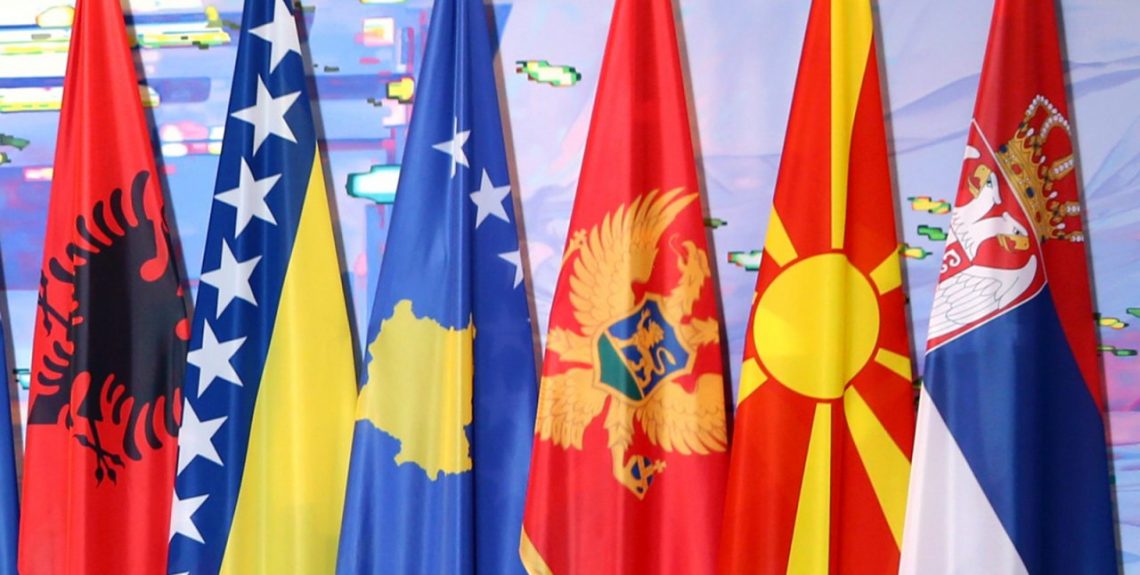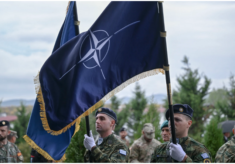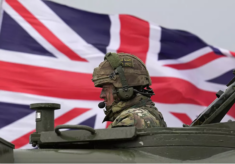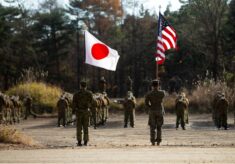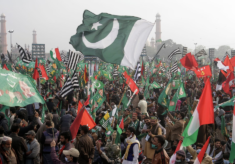Zoran Cicak
Member of the Ohrid Group, Skopje; Foreign Policy Expert and Writer; Belgrade
“Where there is mystery, it is generally suspected there must also be evil.”
(Lord Byron)
This aphorism by Lord Byron – the British poet who invented modern Greece – is generally perceived to be most apposite for the Balkans, the European peninsula that got its name from the Turkish words for blood and honey. Modern English dictionaries document this perception: the very word Balkanisation is a pejorative geopolitical term for the fragmentation of larger region or state into many smaller ones – hostile or uncooperative with each other; Macedonia is not only a geographic, but also a culinary term: a salad composed of small pieces of fruit and vegetables – not necessarily edible; the only word in modern English which originally derived from medieval Serbian is – vampire; a character in George Bernard Shaw’s comedy “Arms and the Man” tells the story about his father, who “never had a bath in his life; and he lived to be ninety-eight, the healthiest man in Bulgaria”.
Beyond the world of dictionaries and literature, the Balkans remains a part of Europe that is seen as ‘different’, the region where – even today – the West still prefers stability over democracy. When dealing with the Balkans, European politicians love to talk about a “European agenda”; they occasionally appoint envoys to resolve “regional problems”; from time to time they disburse some money, without asking too much how it will be spent; and they regularly praise their acts in a Tweet or two. And that’s it – stability as a pragmatic compromise between the chaotic wars of the 1990s and the utopia of Scandinavian-style civic society and prosperity that seems always to be out of reach for the Balkans.
But as is so often the case, this compromise is just a nice way of dressing up failure. While western countries believe they are protecting their interests by avoiding any kind of instability, in fact the failure to achieve progress towards democracy is highly damaging both to the region and to the west. Conflict zones such as Bosnia and Kosovo remain frozen in the same state of ethnic hostility as when the shooting stopped decades ago; narco gangs have reached arrangements with political leaders to create a drugs super highway from producing regions to the wealthy consumers in the EU and UK; the several hundred thousand small arms left over from the fighting over Yugoslavia make criminals in the Balkans amongst the most heavily armed in the world; Russia, Turkey and China vie to exploit the region’s poverty for their own ends; and young people from throughout the region vote with their feet by finding better futures elsewhere.
However, sometime around Christmas 2020 the West will have to replace tweeting with thinking. The simultaneous dawning of a post-Covid and post-Trumpian world will present many hot spots around the world with the opportunity for a fresh start. One such spot might be, but also might not be, the Balkans. The West might decide that the current compromise/failure remains the best realistic option and they should leave the Balkans parked exactly where they are now: on the fringes of Europe, hidden in the mists of the Byronian mysteries and evils, engulfed by eternal hatreds and prejudices. Or it might, just might, try a new tack: instead of containing the Balkans in a perpetual limbo the West could take the steeper, narrower path of finally integrating the Balkans into European architecture.
What would this integration agenda look like?
First, the Balkans has to demythologize itself. Of course, more than a few contemporary European nations are identified, inter alia, by their respective myths: many Englishmen and women believe that King Arthur really existed; the Spaniards continue to dream about El Cid Campeador, and the Portuguese about Gerardo the Fearless, while the Swiss like stories about William Tell, and, similarly, the Italians always enjoy hearing about Sicilian Vespers. However, no European nation is still actually living its ancient myths in the way as all Balkans nations are doing. Myths belong to the drunken evenings while the future needs to be built up in sober mornings.
Second, the West needs to accept a fundamental shift in the dominant Balkans paradigm which is now all but unavoidable. The current ruling elites – who are the political, cultural, spiritual and biological descendants of the 1990s warlords – should be dethroned, their pillars of support carefully dismantled and their ideologies put to rest. It is not just that many are involved in different corruption schemes, and according to credible Western intelligence reports, remain dangerously close to transnational organised crime networks—both within and beyond the region. More importantly, it is that their mindsets, which are fundamentally oriental and ahistorical, shape and influence public opinion, social structures, dominant symbols, and values throughout the Balkans.
Third, there is no sustainable solution for the Balkans if any one of its nations – no matter which one – is made a scapegoat for the ills that have befallen the region. Viable solutions need to break with historically flawed concepts of collective guilt and historical sin. The Balkans are far too small and fragile to afford the luxury of having their own Weimar Germany to blame.
Fourth, the existing non-EU Balkans (often referred to as Western Balkans six) should be offered a simple, clear and fair trade-off: as soon as you replace the existing anti-European mindset you will be admitted as members of the EU. As a matter of fact, the EU has more to gain from a fully Europeanised Balkans, even with their unresolved regional disputes, than from an anti-European Balkans with all disputes artificially settled. The latter option would certainly, at least for some time, remain on the front pages, as the media are always hungry for sensations; it would also attract legions of third-class diplomats, opportunists and arrivistes – all of those fascinated by the shallow glamour of short-term success. However, wise European statesmen would always prefer substantial changes over empty phrases.
Fifth, NATO needs to provide all Balkan nations with credible security guarantees from both external and internal threats. Such an arrangement also needs to address the dark legacy of the 1999 NATO attacks on Yugoslavia, which were in violation of international law and created far too many civil casualties to be simply brushed under the carpet. The past, of course, cannot be changed; however, an accurate, proper and ethically correct review of this tragic episode would be the way to re-think shared history and blunt long-term Russian influence in Serbia.
Sixth, any attempt to change the existing borders in the Balkans would inevitably lead to new disasters. It would open a Pandora’s box full of painful memories, something that populist politicians, greedy arms dealers, false prophets and all sort of adventurers will be only too happy to exploit once again. However, the only way to preserve existing borders in the Balkans is to eradicate them – all together and at once. This is, of course, possible only within the wider political community – once upon a time it was Yugoslavia, now it is the European Union – which would make them irrelevant for good.
Seventh, this project certainly needs some money – but the EU is already providing a lot of money to the region in vain. So far, what Europeans did was effectively buy the loyalty of their enemies and forfeit the support of their friends. Instead of disbursing cash directly to the Balkans governments, the EU should consider establishing an entirely new mechanism: a regional development bank which would finance the recovery of post-COVID19 economies by working directly with clients in the private sector, in a fully transparent manner and according to market principles. Governments and political parties should be denied the role of a greedy middleman. That would be the best and fastest way to create an independent entrepreneurial class in the region which should replace politically-connected tycoons.
If the seven points above strike the reader as being too ambitious, at the end of this text I would like to share an anecdote. In his memoirs, Jean Monnet, the progenitor of The Treaty of Paris (1951), described how a founding document of what later became the European Union was produced: it was printed in France on Dutch paper with German ink, gathered in a binding from Belgium and Luxembourg and decorated with a bookmark woven from Italian silk.
However, what Monnet didn’t say is that – as negotiations were so frantic and couldn’t be finished on time – the sheet of paper which ministers finally signed was left blank. Far from the champagne glasses and media limelight of the Parisian Salon de l’Horloge, invisible experts were polishing the final text for some two weeks afterwards. What really mattered were people, vision, trust and public commitment – not technicalities.
In the same way, one cannot expect that all technicalities of the Balkans final integration agenda might be agreed overnight. However, making a strategic choice to replace the existing Oriental despotism (as defined by the likes of Gibbon, Montesquieu, Marx, and Wittfogel) with modern functional states and to abandon three decades of mutual hatred in favour of the same anti-Fascist spirit which inspired the Founding Fathers of Europe, would require exactly the same shopping list as in 1951 Paris: people, vision, trust and public commitment. Likewise in Salon de l’Horloge, real leaders might achieve all of that even on the blank sheet of paper; invisible experts will polish the text anyway.
Zoran Čičak
Member of The Ohrid Group, Skopje; Foreign Policy Expert and Writer, Belgrade

